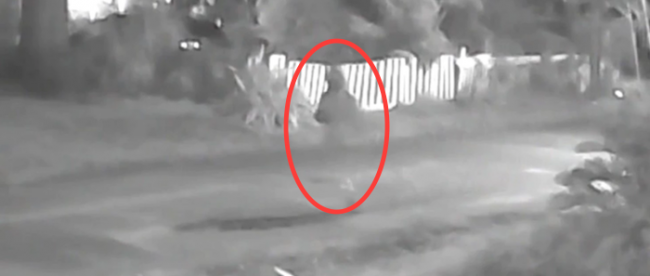‘We don’t open the door’: Serial killer paralyzed this Florida community

Every morning, Tampa police officers keep watch over children waiting for their school buses. City crews have removed debris from alleys and replaced burned out streetlights, making it harder for anyone to hide in the shadows.
Halloween trick-or-treating is effectively canceled. And Faith Baptist Church posted a chilling message on the sign outside its sanctuary: “Do not murder.”
Police in Tampa are trying to determine whether a serial killer is responsible for gunning down three people in 11 days around bus stops in the Seminole Heights neighborhood this month.
But in a vacuum of information, the terrified community is grappling with another question: How do you protect yourself from a killer you know almost nothing about?
Investigators have been particularly candid about how little they have learned about whoever has committed the killings, which have happened in a one-mile radius. The killer’s age, race, gender and motive — even whether it’s just one person acting alone or more — all remain a mystery.
“We have no leads,” Interim Tampa Police Chief Brian Dugan said over the weekend, according to CBS News. “We have no motive.”
In the weeks since they’ve told people the killings may be connected, officers have saturated the neighborhood. “We literally have put bodies out here by the dozens,” the mayor told people at a neighborhood meeting recorded on Facebook.
Police hope the increased presence will help catch the killer, or at least prevent the person from striking again.
The first victim was 22-year-old Benjamin Mitchell, an aspiring musician and community college student, police said. His body was found Oct. 9.
Four days later, officers discovered the body of 32-year-old waitress Monica Hoffa.
And on Thursday, they found the body of 20-year-old Anthony Naiboa.
The common thread was the Route 9 bus, which meanders on a north-south path from the University of South Florida to downtown Tampa.
Mitchell was shot while standing alone at a bus stop, police believe. Naiboa, who has a mild form of autism, had gotten on the wrong bus and was in Seminole Heights by mistake. He was walking home when he was shot. Hoffa was found dead in a vacant lot about 100 yards away.
The bus has since been rerouted, and officials have taken other measures to safeguard the community. They guarded a candlelight memorial held for the victims and encouraged the worried neighborhood residents to help with the investigation — calling in tips to the police station or allowing officers to have access to home security video footage.
And police have released a cryptic video of what appears to be a man with light pants and a dark hoodie that they want to talk to about the killings. The person is walking alone at night through the neighborhood, occasionally glancing at a cellphone.
That is a new taboo in Seminole Heights: walking alone at night.
“This pains me to tell you that if you’re out there walking alone, that you’re either a suspect or a potential victim,” Dugan said at the community meeting.
At that meeting, Tampa Mayor Bob Buckhorn was defiant, and adamant that the killer would be apprehended.
“These are our streets,” he yelled into the microphone, eliciting applause. “These are our neighborhoods. This is your community, and we are not going to let evil win this race. Not happening.”
But for people going about their lives in the neighborhood, that resolve was tinged with fear.
Maria Maldonado, for example, won’t let her 7-year-old son play in the family’s front yard.
“I’m afraid,” she told the Associated Press. “We don’t open the door or nothing. A lot of people are scared. I’m scared for my son, for the neighborhood.”
Majed Foqahaa told the AP that he owns a convenience store where two of the victims used to regularly stop in for snacks. It usually closes well after the sun sets.
When it’s time to walk to his car at the end of the night, Foqahaa said he rushes from the store to the vehicle with his gun in his hand.